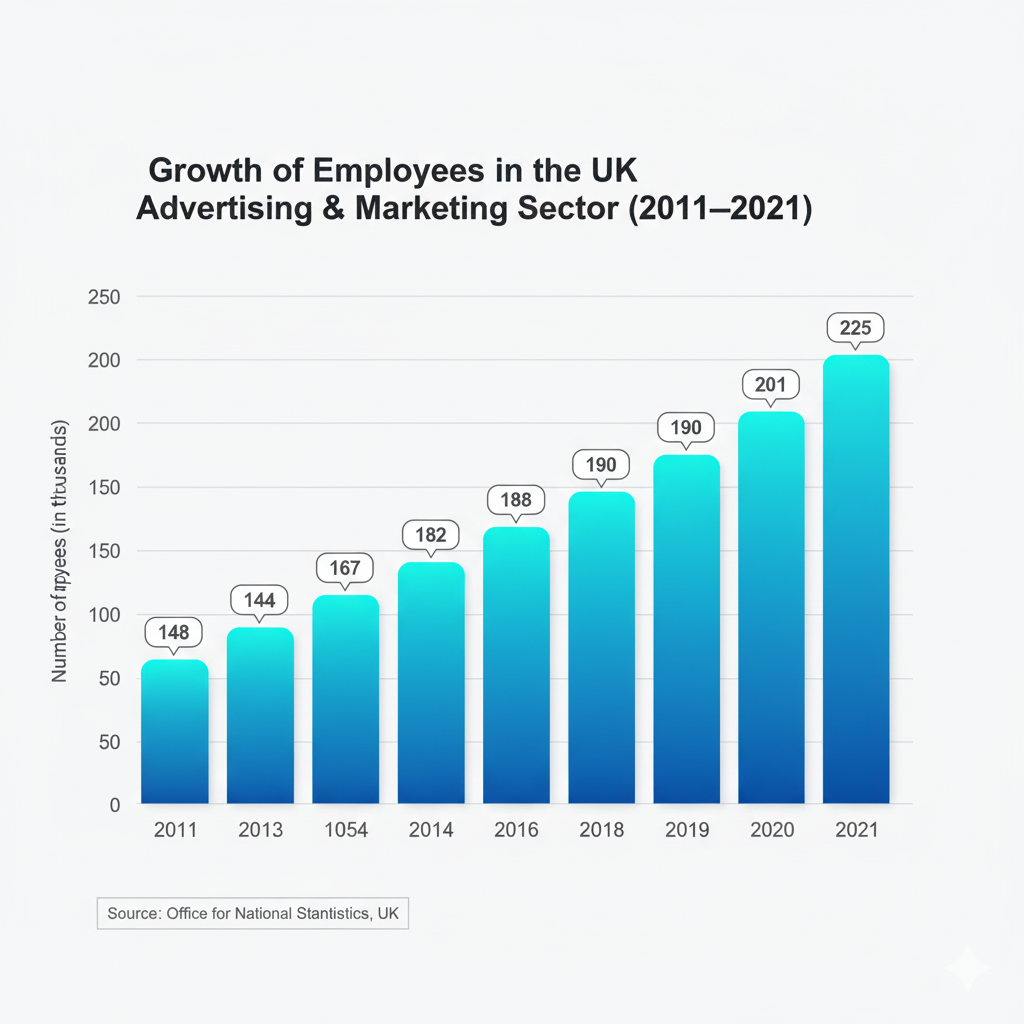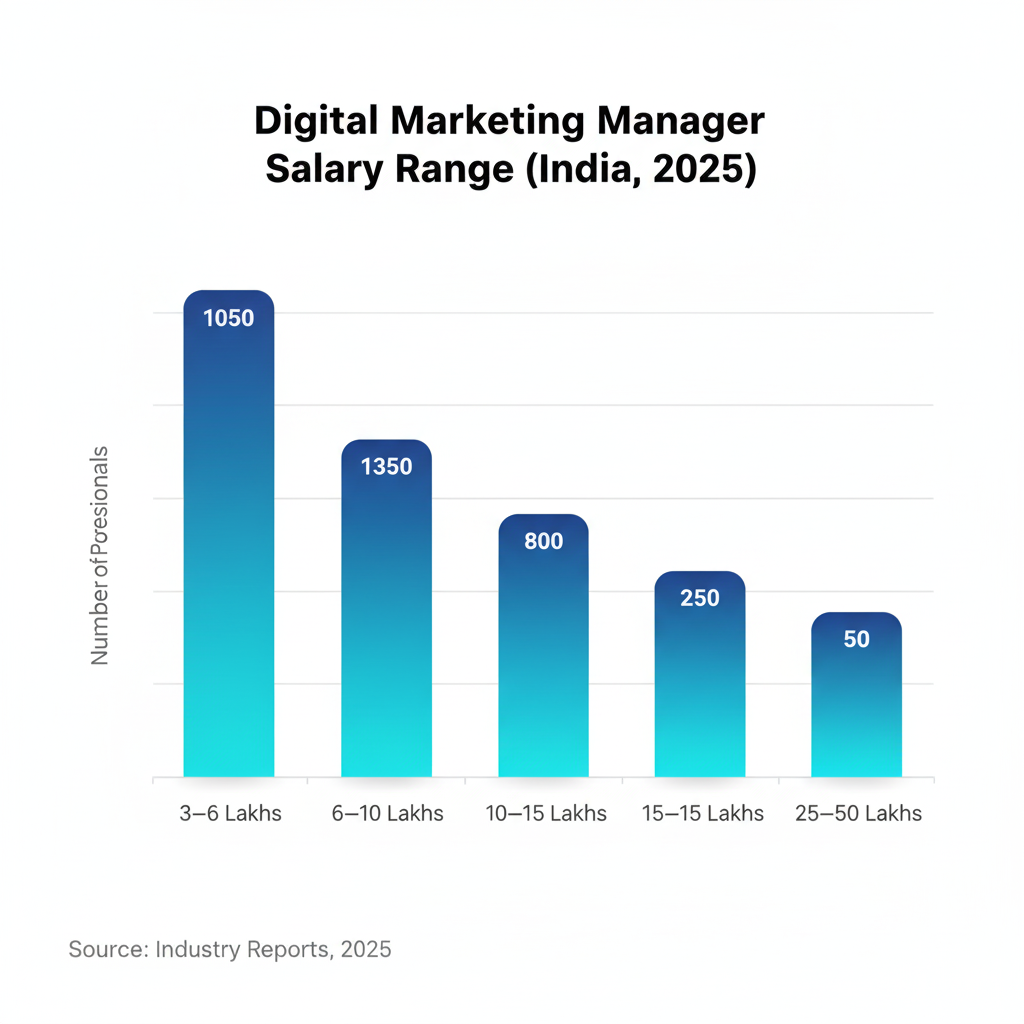If you’re exploring career options in 2025, whether you’re a fresh graduate, someone thinking of switching careers, or a professional keen to upskill, then the field of digital marketing deserves serious attention. The reason? Business and marketing are no longer just about billboards and TV ads. The world has shifted online, mobile-first, algorithm-driven, and global. In this new landscape, a career in digital marketing offers not only job security but the chance to be creative, strategic, flexible, and globally connected.
In an era of rapid change AI tools, remote work, e-commerce booms, and global audiences digital marketing stands out as a smart, future-proof career choice. There are roles for creatives, analysts, and strategists, for people who enjoy storytelling, data mining, building brands, working remotely, and collaborating across borders. For those looking to specialize, SEO classes in Ahmedabad provide the perfect opportunity to gain practical skills in search engine optimization and boost your career prospects in this high-demand area.
Below are nine key benefits of a career in digital marketing in 2025 what each benefit means, why it matters now, and how you (yes, you) can capitalize on it.
1. Growing Demand

What it is: Simply: more businesses need digital marketers’ people who understand how to build an online presence, run campaigns, analyze performance.
Why it matters in 2025: The global digital advertising & marketing expenditure is projected to reach about US $786 billion by 2026. Also, roles requiring digital skills have spiked e.g., a LinkedIn survey found big increases in companies hiring digital/media roles. As businesses continue to pivot online (accelerated by pandemic-era shifts) and compete for attention, skilled digital marketers are in demand across sectors retail, tech, healthcare, and education.
How you can capitalize:
- Start building proficiency in core digital-marketing areas (SEO, PPC, social media, analytics) so you meet market demand.
- Keep an eye on job boards and freelance platforms, many roles now emphasize digital skills explicitly.
- When applying, highlight results (campaigns, growth metrics) rather than just “I did social media”. Show impact.
- Stay abreast of new platforms, formats (short video, voice search) because demand keeps shifting.
2. Diverse Career Paths
What it is: Digital marketing isn’t one fixed job. You can specialize in many roles from social-media manager, SEO specialist, content marketer, paid-ads expert, to growth marketer, analytics strategist, even AI-marketing specialist.
Why it matters in 2025: Because the ecosystem is complex (multiple channels, formats, tools), the ability to pick a niche you enjoy and grow in that direction gives you flexibility and longevity. Also, many skills cross over meaning you’re not locked into one path. This matters in a fast-changing landscape.
How you can capitalize:
- Reflect on your strengths and interests: are you more creative (content, design) or more analytical (data, analytics)?
- Try short projects or internships in two or three digital-marketing areas to find fit.
- Once you pick a specialization, invest in a certificate or training in that area (for example: social ads, analytics tools, SEO tools).
- Build a portfolio around your specialization (see further below) show that you can contribute real value in that niche.
3. Creativity & Innovation
What it is: Digital marketing gives you scope to ideate, experiment, create not just follow scripts. Whether it’s social-stories, video content, influencer collaborations, interactive ads, or storytelling campaigns.
Why it matters in 2025: With audiences saturated and attention short, brands need fresh, creative, multi-channel campaigns (think TikTok/Reels, interactive formats, voice search optimization). Creativity paired with data-driven insight becomes a differentiator. For instance, 86% of businesses use video marketing to drive engagement. AI tools are emerging, but they can’t yet replace human creativity, strategy, and empathy.
How you can capitalize:
- If you enjoy storytelling, graphic design, video or social media, these are great entry points.
- Experiment with new formats: maybe launch your own Instagram/TikTok series or a micro-campaign for a small brand.
- Build a “creative portfolio” showcasing your ideas, designs, or campaign mockups. Even personal projects count.
- Stay updated on emerging tech/format (e.g., AR/VR in ads, voice search) being early gives you an edge.
4. Flexibility / Work-Life Balance
What it is: Many digital marketing roles offer remote/hybrid work, freelance or contract opportunities, the ability to choose when and where to work offering lifestyle freedom.
Why it matters in 2025: Remote work has become mainstream; companies are more comfortable hiring remote digital-marketing professionals and working across time zones. For those wanting flexibility (travel, location, independence, side-hustles), this is a big plus. Also, in countries like India, remote work allows professionals outside metro cities to access bigger roles.
How you can capitalize:
- Invest in strong remote-work practices: good internet, a proper workspace, time-management discipline.
- Build a strong personal online presence (LinkedIn profile, website/portfolio) which signals you’re remote-work ready.
- Consider freelancing on the side: even managing a few clients gives you flexibility and builds your reputation.
- When interviewing, emphasize your ability to deliver remotely (time-zones, collaboration tools, self-motivation) many employers value this.
5. Continuous Upskilling / Skill Development
What it is: The digital-marketing field evolves fast new platforms, formats, algorithms, analytics tools, AI integrations. Learning is constant.
Why it matters in 2025: In this era of AI, automation and shifting platforms, the marketers who stay relevant are those who keep learning and adapting. For example, AI is driving marketing-productivity gains and changing skill-requirements. Also, continuous learning ensures you don’t get locked into outdated practices.
How you can capitalize:
- Dedicate time for ongoing learning: subscribe to marketing blogs, join webinars, take short courses.
- Choose one new tool or trend each quarter (e.g., analytics dashboard, TikTok ad format, generative-content marketing) and experiment.
- Add certifications to your résumé, they signal both baseline knowledge and adaptability.
- Reflect and revise: every few months, review your skill set and update what’s next. Be proactive.
6. High Earning Potential

What it is: Digital-marketing roles often reward performance, results and specialization and salaries are competitive. Retail salaries scale with skill, responsibility and niche.
Why it matters in 2025: With the demand high and talent short, companies are willing to pay well for top digital-marketing talent, especially those who can deliver measurable value (ROI, data-driven growth). Freelancing or consulting adds further earning potential.
How you can capitalize:
- Focus early on measurable skills: e.g., running paid-ads campaigns, generating leads, optimizing conversion. These skills often translate to higher pay.
- Build your portfolio to showcase results (see closing section). Having real results helps you command more.
- Consider freelance side gigs in parallel to full-time roles this diversifies income and gives you negotiation power.
- Choose a specialization that is in demand and commands higher pay (e.g., performance marketing, analytics, growth marketing) and deepen expertise there.
7. Impactful Work
What it is: Digital marketing gives you the chance to see direct-to-audience results, shape brand stories, influence behavior, and make real impact not just behind-the-scenes.
Why it matters in 2025: Audiences expect brands to stand for something; digital channels give brands the ability to engage, influence, and mobilize. As a digital marketer you’re not just “doing ads” you’re helping shape brand reputation, customer experience, social purpose campaigns. And you can measure that impact in real time.
How you can capitalize:
- Look for roles or projects that align with your values e.g., working with purpose-driven brands, non-profits, or sustainability initiatives.
- Use analytics to measure impact: show how campaigns improve engagement, awareness, behavior. Employers love quantifiable impact.
- Build a personal brand/case-study of work you’ve done where you truly made a difference this can be a strong differentiator.
- If you enjoy meaning-making, storytelling or audience-engagement, it highlights that interest when looking for roles.
8. Social Interaction & Networking
What it is: Even though many digital-marketing roles can be remote, the field is highly social & networked you’ll collaborate with teams, agencies, influencers, clients, stakeholders, and often build relationships across industries and geographies.
Why it matters in 2025: In a world where who you know still matters and remote collaboration is the norm, having a strong professional network gives you access to newer roles, mentorship, freelance opportunities, global clients. Plus, digital-marketing communities (online and offline) are thriving.
How you can capitalize:
- Join digital-marketing communities, LinkedIn groups, attend webinars/conferences (even virtually) they’re great for learning and connections.
- Build a personal brand: publish articles or posts on LinkedIn about marketing topics you’re exploring; this positions you as someone engaged, visible.
- Reach out for informational interviews with professionals in roles you aspire to ask about their day-to-day challenges, how they progressed.
- Keep track of your network: maintain contacts, follow up, share your work. Opportunities often come via people you know.
9. Global Opportunities
What it is: SEO Marketing and digital-marketing skills are highly transferable across markets, time zones, industries, and geographies. You could work for a startup in India, an agency in the US, a brand in Europe, or serve global clients remotely.
Why it matters in 2025: The world is connected more than ever. Remote hiring is common. Brands target global audiences. If you can market globally understanding cultural nuance, localization, international channels you’re highly valuable. Also, for professionals in non-metropolitan areas, global roles mean you’re not limited by local geography.
How you can capitalize:
- Build a mindset for global markets: study case-studies of brands that succeeded internationally; learn about localization, cultural differences, global platforms.
- Highlight remote/global work readiness in your profile: mention collaborating across time-zones, using tools for remote teamwork, multilingual/cultural awareness if you have it.
- Consider freelancing across borders: platforms like Upwork/Workana can connect you with international clients needing digital-marketing help.
- Invest in language or regional market knowledge if you want to specialize (e.g., Middle East, Latin America, Southeast Asia) – niche regional expertise adds value.
Conclusion
In 2025, digital marketing stands as one of the most exciting, dynamic, and future-proof career paths you can choose. It’s more than just managing social media accounts or running ads, it’s about understanding people, shaping stories, leveraging technology, and driving real business impact in a digital-first world. Whether you’re a recent graduate exploring your options, a professional ready for a career pivot, or someone looking to future-proof your skills, digital marketing offers a perfect blend of creativity, flexibility, and growth potential.
If you’re eager to build expertise and hands-on experience, digital marketing classes in Ahmedabad can help you master essential tools, strategies, and techniques to succeed in this ever-evolving field.
The beauty of this field is that anyone with curiosity, consistency, and creativity can thrive. You don’t need to start with a marketing degree just with the willingness to learn, adapt, and build hands-on experience. The demand is rising, global opportunities are expanding, and the tools to get started are at your fingertips.
So, take the leap. Start learning today, build your first campaign, analyze the results, and keep experimenting. Every click, every insight, every idea you test brings you closer to mastering one of the most in-demand skill sets of the decade.


